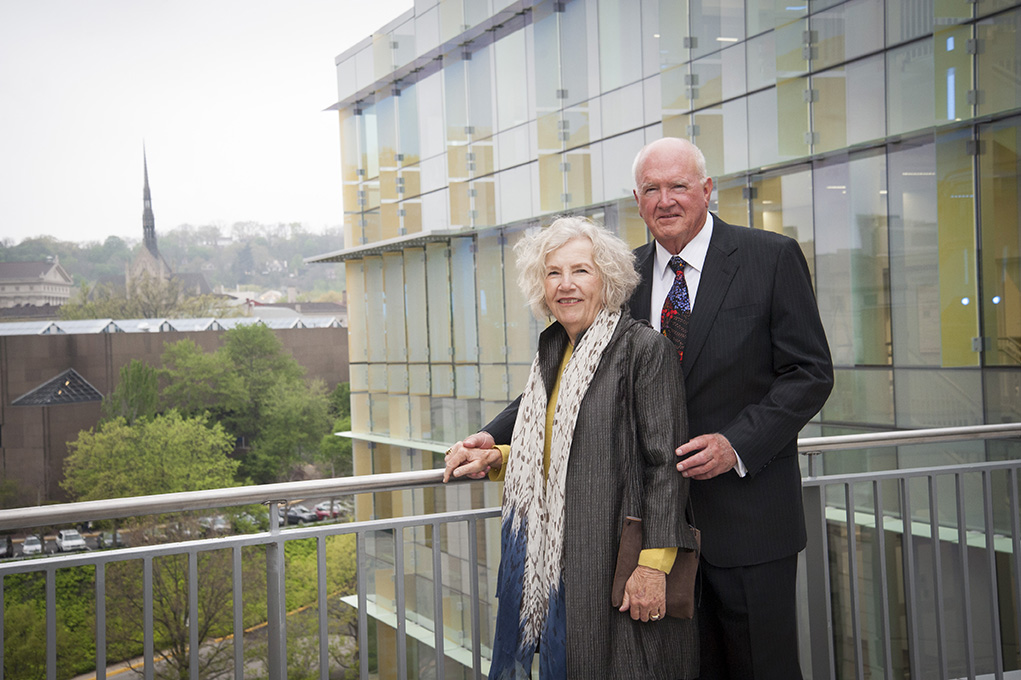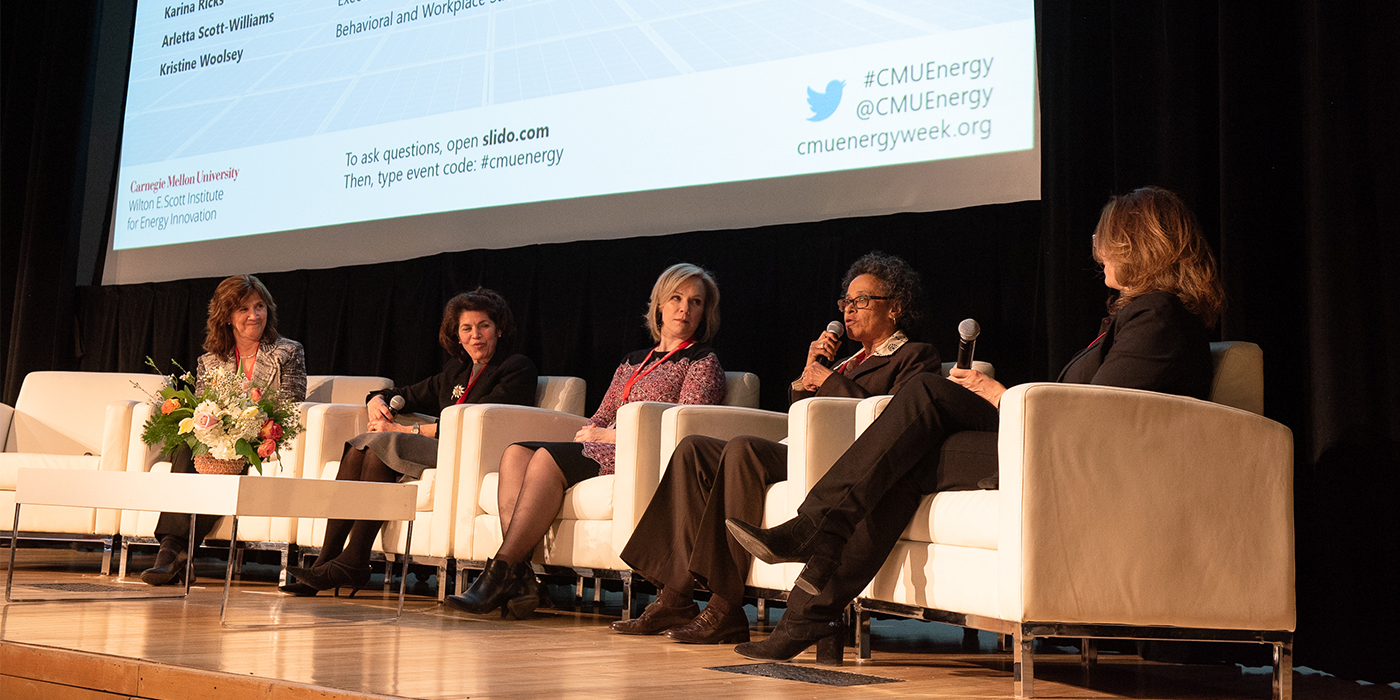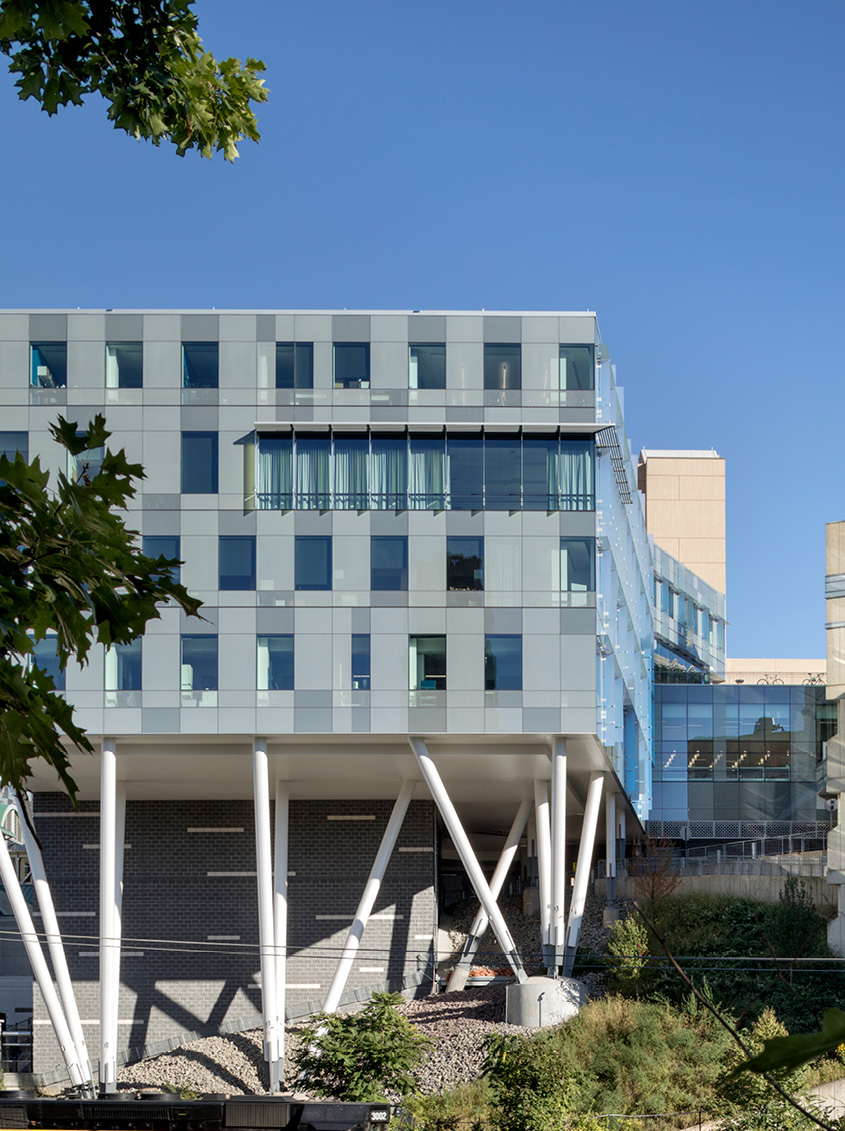10 Years of Impact
The Scott Institute celebrates its 10th anniversary
By Sera Passerini
One walking the streets of Pittsburgh today might spot an electric bus passing a decommissioned steel mill covered in photovoltaics, sights that seemed impossible at a time when Pittsburghers once walked through veils of smoke that darkened the daylight, a hazy byproduct of the coal that was so important to Pittsburgh's development. Pittsburgh’s history with energy is rich and storied; the energy industry took off here, fueling the massive demands of Andrew Carnegie’s mills. And while Carnegie’s mills polluted the region’s air and waterways, his educational institution — which would eventually become Carnegie Mellon University — was crucial in leading the development of clean energy technologies and policies.
Since 2012, the Scott Institute for Energy Innovation has built upon this foundation of energy history and leads the way in energy innovation in both Pittsburgh and beyond. When Joyce Bowie Scott and Sherman Scott each received their CMU diplomas – hers in 1965 from the College of Fine Arts and his, a year later from the College of Engineering – they never imagined their names would be engraved into the walls of one of the University’s most iconic buildings nearly 50 years later. Named after Sherman’s father, a passionate geologist and energy industry leader, the Wilton E. Scott Institute for Energy Innovation has captured Wilton Scott’s enthusiasm for discovery in the energy field.
“Over the past decade, the Scott Institute has championed projects and collaborations to make a lasting impact on the world.”
- Jay WhitacRe
director of the Scott Institute
The Scott Institute has become one of the premier energy institutions in the country, having recently been named one of the American Energy Society’s “Energy Elites.” From the beginning, its mission has been to support energy research and technology to create a more sustainable, equitable, accessible and efficient future, and through various initiatives, funding opportunities, events and more, the Scott Institute has supported and advocated for the work of top researchers and developers in the energy field. In addition to bringing at least $60M in energy research funding from public and private funding sources, the Scott Institute has helped launch over 30 energy and cleantech startup companies.
“The Scott Institute has become a leader at forging relationships between different disciplines to develop responses to the most complex questions in the energy field,” says Jay Whitacre, director of the Scott Institute. “Over the past decade, the Scott Institute has championed projects and collaborations to make a lasting impact on the world.”
One of the most instrumental initiatives of the Scott Institute has been the Seed Grants for Energy Research which began in 2013 with the first round of funding. “It has been very impactful and valuable for the faculty… Faculty make tremendous use of it. It has been leveraged into many millions of dollars, outside support,” says Dr. Jared Cohon, director of the Scott Institute from 2014 to 2017. Since its establishment, the seed grants have distributed $3.1 million to fund seventy research teams and leading to faculty receiving about $17 million in external funding for their projects.
In 2019, the Scott Institute established the University Energy Institute Collaborative (UEIC), a coalition of energy institutes across the US. Bringing together over 150 institutions and energy experts to catalyze connections and new innovations, this program is the first of its kind and fuels collaborative efforts to achieve the member institutes’ shared vision of a lower carbon future. Members of the UEIC convene annually to exchange ideas, inspire meaningful research, engage scholarship, inform regional and national policy, impact decision-making and re-imagine energy education to be ready to create the future of energy systems.
CMU is home to many talented faculty and students, and the Institute not only provides support for their research, technology and other relevant endeavors, but also offers them with the chance to connect with others. Graduate students from programs such as the Energy Science Technology & Policy (EST&P) program can intern with the Scott Institute as well, contributing to the opportunity to build on their experiences and industry reach. “I think my internship with Scott institute has amplified my experience by working with such a dynamic group of energy professionals. During my internship, I have learned more about exciting research opportunities by talking to Scott Institute affiliates,” says Prathit Dave, a current EST&P student, and Scott Institute intern.
Expanding beyond the CMU community, the Scott Institute has hosted the annual CMU Energy Week, which was launched in March 2016 and has brought approximately 1,000 attendees to campus each year. During Energy Week, the Scott Institute brings together academics, professionals, students, and other leaders of the energy sector for a series of forums, panel discussions and unique events to engage industry, students, faculty, staff, government officials and innovators in technology and the public on the future of research, policy and education. Energy Week has included something for everyone—career fairs, hackathons, panels on current research and the future of energy featuring top researchers, industry leaders, and more. Past participants have included former Department of Energy Deputy Secretary Elizabeth Sherwood-Randall, Pittsburgh mayor William Peduto, Congressman Conor Lamb, co-founder of Lyft, Raj Kapoor, and many others.
Over the course of a decade, the Scott Institute has forged relationships between external contributors, but also within the university itself. “The Scott Institute plays a role… both inside the university and outside, both regionally and nationally, as the convener of other institutes,” according to Dr. Cohon. The Scott Institute has forged multiple partnerships of all shapes and sizes—from working with industry to partnering with Department of Energy to help organize and run the American Made challenges and the Energy Tech University Prize, hosting both programs’ national finals competitions during Energy Week 2022.
The Scott Institute will continue to support all kinds of research, technology, and development of innovations in the energy sector that help create a lower-carbon outlook. By continuing to add initiatives, expand outreach and push to support the innovators in the energy sector, the Scott Institute aims to maintain their mission and achieve an equitable and sustainable energy future.
People may have once said that “coal is the rock upon which Pittsburgh was built,” but the Scott Institute hopes to prove that clean energy innovation will be that upon which Pittsburgh grows.




